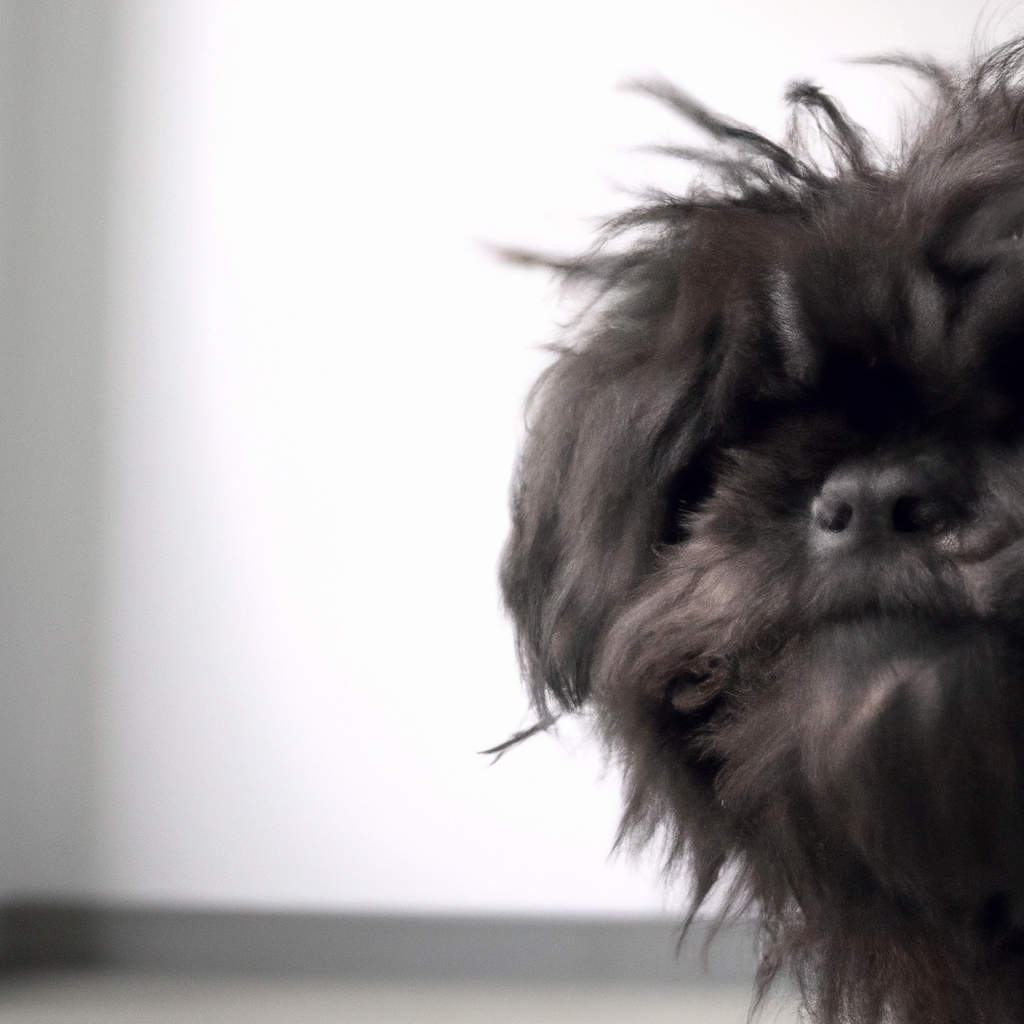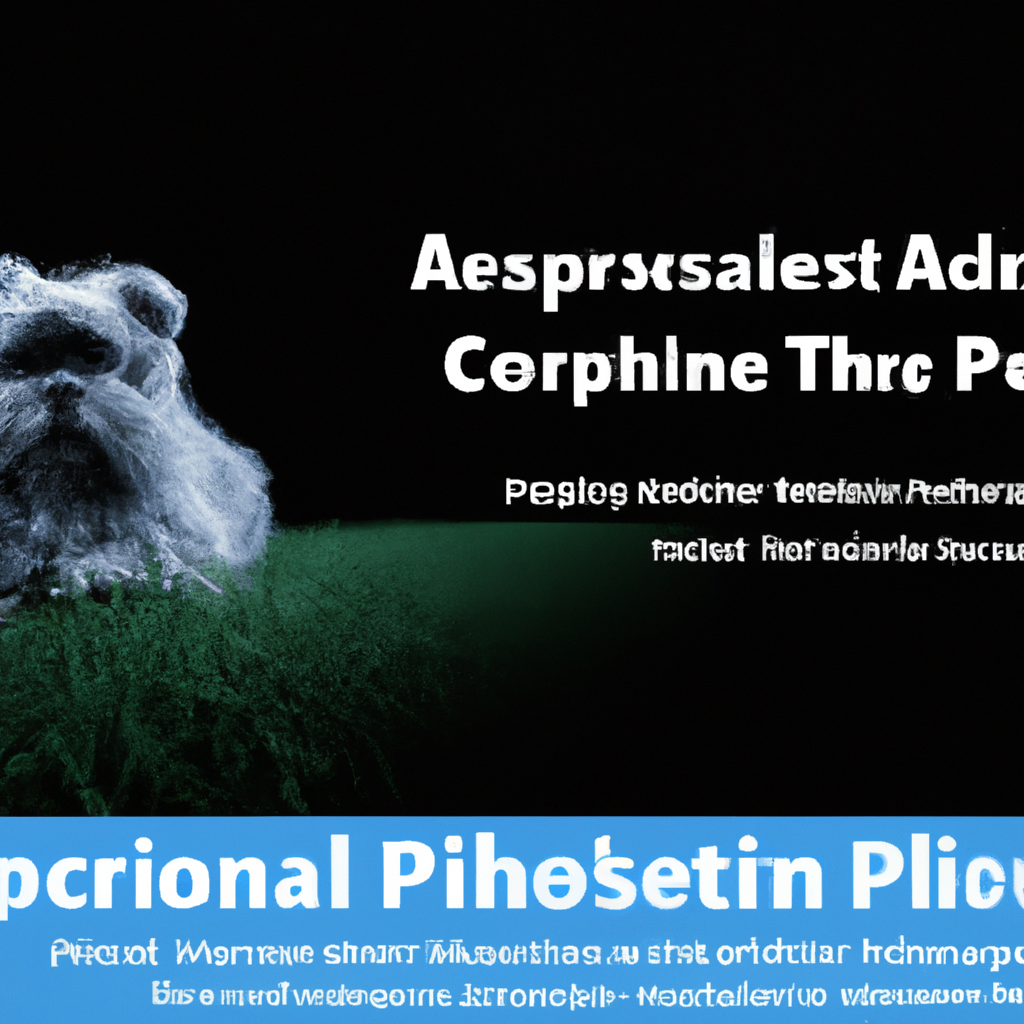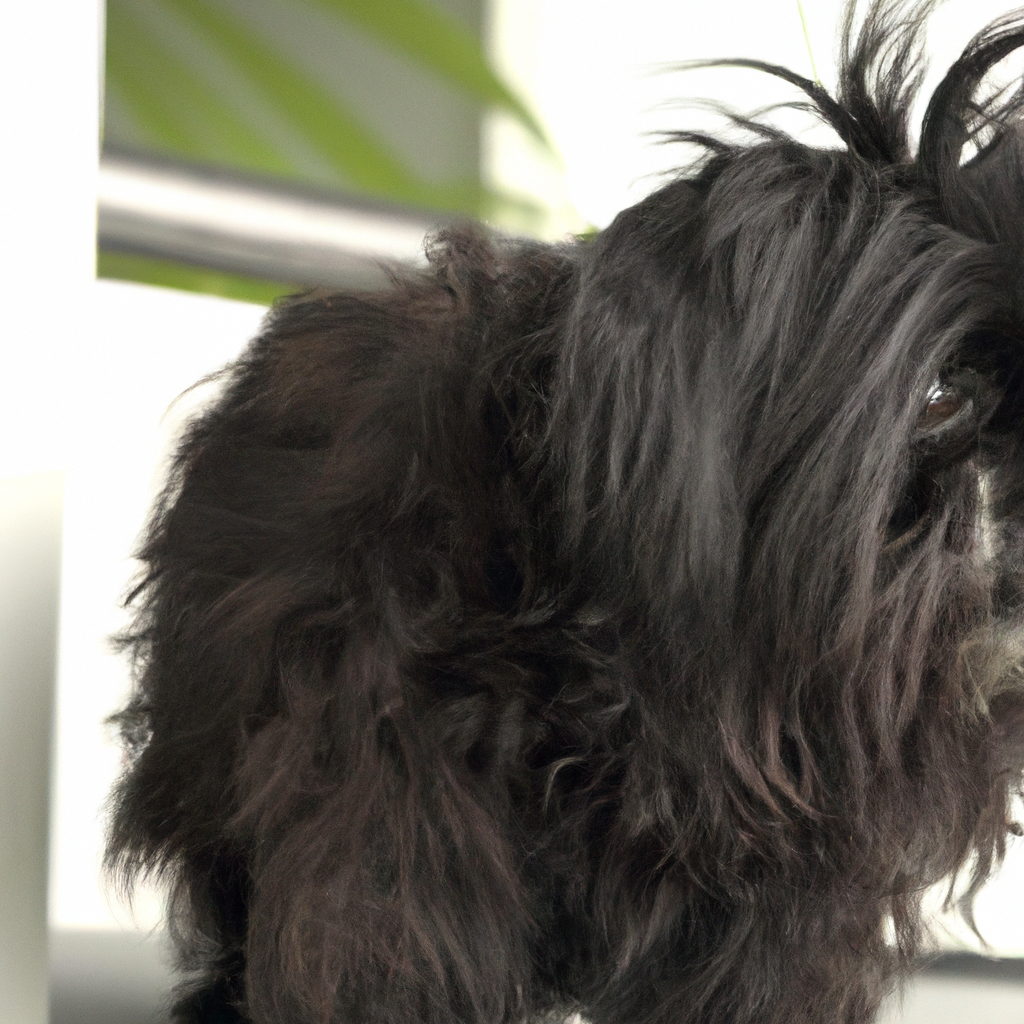Affenpinschers, a breed of small dogs known for their monkey-like appearance, are generally healthy but they can be prone to certain health conditions. The main health problems in Affenpinschers include hip dysplasia, a condition where the hip joint doesn’t fit together perfectly which can lead to arthritis; Legg-Calve-Perthes Disease, a condition that affects the hip joint; heart defects; vision problems such as cataracts and progressive retinal atrophy (PRA); and breathing problems due to their short snout. They are also prone to dental issues due to their small mouth and crowded teeth, and obesity, which can lead to various other health problems.
Understanding the Genetic Health Issues in Affenpinschers
Affenpinschers, affectionately known as “Monkey Dogs,” are a small breed of dog that originated in Germany. These dogs are known for their distinctive, almost human-like facial expressions and their playful, energetic personalities. However, like all breeds, Affenpinschers are prone to certain health problems. Understanding these genetic health issues can help owners provide the best possible care for their Affenpinscher companions.
One of the most common health problems in Affenpinschers is hip dysplasia. This is a genetic condition where the hip joint doesn’t fit together properly, leading to pain and mobility issues. It’s a common problem in many breeds, but Affenpinschers are particularly susceptible. Regular exercise and a healthy diet can help manage this condition, but in severe cases, surgery may be necessary.
Another common health issue in Affenpinschers is a condition known as patellar luxation. This is when the kneecap slips out of place, causing pain and difficulty walking. It’s a condition that can be present from birth or develop over time due to injury or wear and tear. Treatment for patellar luxation can range from physical therapy to surgery, depending on the severity of the condition.
Affenpinschers are also prone to certain eye conditions, including cataracts and progressive retinal atrophy (PRA). Cataracts can cause cloudiness in the eye and can lead to blindness if left untreated. PRA is a degenerative eye disease that also leads to blindness. Regular eye exams can help catch these conditions early, and treatment options can include medication or surgery.
Heart disease is another health concern for Affenpinschers. This breed is prone to a condition called mitral valve disease, which affects the heart’s ability to pump blood effectively. Symptoms can include coughing, fatigue, and difficulty breathing. Regular vet check-ups can help catch this condition early, and treatment can include medication and lifestyle changes.
Finally, Affenpinschers can be prone to certain skin conditions, including allergies and skin infections. These can cause itching, redness, and discomfort. Regular grooming can help keep the skin healthy, and if a skin condition does develop, it can often be treated with medication.
While these health issues can sound daunting, it’s important to remember that not all Affenpinschers will develop these problems. Many live long, healthy lives with the right care and attention. Regular vet check-ups, a balanced diet, and plenty of exercises can go a long way in keeping your Affenpinscher healthy.
Moreover, if you’re considering adding an Affenpinscher to your family, it’s a good idea to find a reputable breeder who tests their breeding dogs for these and other genetic conditions. This can help ensure that you’re bringing home a healthy puppy.
In conclusion, while Affenpinschers are prone to certain health problems, understanding these issues can help owners provide the best possible care for their pets. Regular vet visits, a healthy lifestyle, and early detection are key to managing these conditions and ensuring your Affenpinscher lives a long, happy life.
Affenpinschers and Hip Dysplasia: A Common Health Problem
Affenpinschers, often referred to as “Monkey Dogs” due to their distinct, primate-like appearance, are a small breed of dog that originated in Germany. Despite their small size, these dogs are known for their big personalities and are loved for their loyalty and playful nature. However, like all breeds, Affenpinschers are prone to certain health problems. One of the most common health issues that plague this breed is hip dysplasia.
Hip dysplasia is a genetic condition that affects the hip joint of dogs. It occurs when the ball and socket of the hip joint do not fit together properly, causing the joint to rub and grind instead of sliding smoothly. This can lead to pain, inflammation, and over time, loss of function in the joint. In Affenpinschers, this condition can be particularly debilitating due to their small size and active nature.
The symptoms of hip dysplasia in Affenpinschers can vary greatly depending on the severity of the condition. Some dogs may show no signs at all, while others may exhibit symptoms such as difficulty standing up or sitting down, decreased activity, loss of thigh muscle mass, and a swaying gait. In severe cases, Affenpinschers with hip dysplasia may even become lame in their hind legs.
While hip dysplasia is a genetic condition, meaning it is passed down from parent to offspring, there are also environmental factors that can contribute to its development. For instance, rapid weight gain and obesity can put extra stress on the hip joints, exacerbating the condition. Similarly, excessive exercise or activities that put a lot of strain on the hips, such as jumping or running on hard surfaces, can also increase the risk of developing hip dysplasia.
Despite the prevalence of hip dysplasia in Affenpinschers, there are steps that owners can take to manage the condition and improve their dog’s quality of life. One of the most effective ways to manage hip dysplasia is through weight management. Keeping your Affenpinscher at a healthy weight can help to reduce the strain on their hips and slow the progression of the disease. Regular, low-impact exercise, such as swimming or walking, can also help to keep the joints flexible and strengthen the muscles that support the hips.
In addition to lifestyle changes, there are also medical treatments available for Affenpinschers with hip dysplasia. Pain medication and anti-inflammatory drugs can help to manage the symptoms of the condition, while physical therapy can improve mobility and function. In severe cases, surgery may be recommended to repair or replace the hip joint.
In conclusion, while hip dysplasia is a common health problem in Affenpinschers, it is not a death sentence. With proper management and care, Affenpinschers with hip dysplasia can lead happy, active lives. As an owner, the most important thing you can do is to be aware of the signs and symptoms of hip dysplasia, and to seek veterinary care if you notice any changes in your dog’s behavior or mobility. After all, our furry friends rely on us to look out for their health and well-being.
The Prevalence of Heart Disease in Affenpinschers
Affenpinschers, affectionately known as “Monkey Dogs,” are small, sturdy, and adventurous dogs known for their distinctive appearance and playful nature. However, like all breeds, Affenpinschers are prone to certain health conditions. One of the most prevalent health problems in Affenpinschers is heart disease.
Heart disease in Affenpinschers is a serious concern that can significantly impact their quality of life. It’s a broad term that encompasses a range of conditions, including heart murmurs, congestive heart failure, and mitral valve disease. These conditions can lead to a variety of symptoms, such as fatigue, difficulty breathing, and decreased appetite.
Heart murmurs, for instance, are quite common in Affenpinschers. They are abnormal sounds during the heartbeat cycle, often caused by turbulent blood flow in the heart. While some heart murmurs are harmless, others can be indicative of serious heart conditions.
Congestive heart failure, another form of heart disease, is a condition where the heart can’t pump blood effectively, leading to a buildup of fluid in the body. This can cause symptoms like coughing, difficulty breathing, and fatigue. It’s a progressive disease that can be managed with medication, but it’s important to catch it early for the best prognosis.
Mitral valve disease is another heart condition that Affenpinschers are prone to. It’s a condition where the mitral valve in the heart doesn’t close properly, allowing blood to flow backward into the heart. This can lead to symptoms like coughing, fatigue, and rapid breathing.
While these conditions sound scary, it’s important to remember that not all Affenpinschers will develop heart disease. Many live long, healthy lives without any heart problems. However, because of their increased risk, it’s crucial for Affenpinscher owners to be aware of the signs and symptoms of heart disease and to seek veterinary care if they notice anything unusual.
Regular veterinary check-ups are key to catching heart disease early. Your vet can listen for heart murmurs and other abnormal heart sounds during routine exams. If they suspect heart disease, they may recommend further testing, such as an echocardiogram or a chest x-ray, to get a better look at your dog’s heart.
In addition to regular vet visits, a healthy lifestyle can also help prevent heart disease in Affenpinschers. A balanced diet, regular exercise, and maintaining a healthy weight are all important for heart health. Avoiding exposure to secondhand smoke and other environmental toxins can also help protect your dog’s heart.
In conclusion, while heart disease is a prevalent health problem in Affenpinschers, it’s not a guaranteed fate. With regular veterinary care and a healthy lifestyle, many Affenpinschers can live long, happy lives. As an Affenpinscher owner, it’s important to be aware of the signs of heart disease and to seek veterinary care if you notice anything unusual. Remember, early detection is key when it comes to managing heart disease in dogs.
Eye Problems in Affenpinschers: An Overview

Affenpinschers, affectionately known as “Monkey Dogs,” are small, sturdy dogs known for their distinctive, almost human-like facial expressions. These charming, intelligent, and sometimes stubborn dogs are a popular breed for many dog lovers. However, like all breeds, Affenpinschers are prone to certain health issues, particularly eye problems.
Eye problems in Affenpinschers are a significant concern for breeders and owners alike. These issues can range from minor irritations to severe conditions that may lead to blindness if left untreated. One of the most common eye problems in Affenpinschers is Progressive Retinal Atrophy (PRA). This is a group of genetic diseases that cause the retina’s gradual deterioration, leading to impaired vision and eventually blindness. PRA is particularly concerning because Affenpinschers often show no signs of discomfort or pain, even as their vision deteriorates.
Another common eye problem in Affenpinschers is cataracts. Just like in humans, cataracts in dogs cause a clouding of the lens, which can impair vision. While cataracts can occur due to aging, they can also be hereditary in Affenpinschers. Therefore, it’s crucial for breeders to have their dogs’ eyes checked regularly and to use only dogs free of hereditary cataracts for breeding.
Corneal dystrophy is another eye condition that Affenpinschers may face. This condition affects the cornea, the clear front surface of the eye. It causes the cornea to become opaque, which can lead to vision loss. Corneal dystrophy is usually an inherited condition in Affenpinschers, and while it’s not painful, it can significantly impact a dog’s quality of life.
Glaucoma, a condition that causes increased pressure in the eye, is also a concern for Affenpinschers. This increased pressure can damage the optic nerve, leading to vision loss and blindness. Glaucoma can be particularly painful for dogs and requires immediate veterinary attention.
Dry eye, or Keratoconjunctivitis Sicca (KCS), is another common issue. This condition occurs when the dog’s eyes don’t produce enough tears, leading to dry, irritated eyes. If left untreated, KCS can lead to corneal ulcers and even blindness.
While these eye problems may sound daunting, it’s important to remember that with regular check-ups and early detection, many of these conditions can be managed effectively. Regular eye exams by a veterinary ophthalmologist are crucial for early detection and treatment of these conditions.
Moreover, responsible breeding practices can significantly reduce the risk of hereditary eye conditions in Affenpinschers. Breeders should have their dogs’ eyes tested regularly and avoid breeding dogs with hereditary eye conditions.
In conclusion, while Affenpinschers are prone to a variety of eye problems, these issues can often be managed with regular veterinary care and responsible breeding practices. As an Affenpinscher owner, being aware of these potential health issues and taking proactive steps to monitor your dog’s eye health can go a long way in ensuring your furry friend leads a happy, healthy life.
Patellar Luxation: A Common Affenpinscher Health Issue
Affenpinschers, affectionately known as “Monkey Dogs,” are small, charming, and energetic dogs that are loved by many for their unique appearance and playful nature. However, like all breeds, Affenpinschers are prone to certain health issues. One of the most common health problems in Affenpinschers is Patellar Luxation.
Patellar Luxation, also known as slipped stifles, is a condition where the dog’s kneecap (patella) dislocates or moves out of its normal location. This condition is quite common in small dog breeds, including Affenpinschers. It’s a congenital disease, meaning it’s present at birth, although the actual misalignment often doesn’t occur until much later. The rubbing caused by patellar luxation can lead to arthritis, a degenerative joint disease, and can also lead to a rupture of the knee ligament.
Symptoms of patellar luxation in Affenpinschers can vary. Some dogs will exhibit obvious lameness, while others may not show any discomfort at all. A telltale sign is a skip in the dog’s step, or an occasional hop in the affected leg, which happens when the patella pops out of place. If you notice your Affenpinscher showing any of these signs, it’s important to consult with a vet immediately.
Diagnosing patellar luxation involves a thorough physical examination by a vet, who will manipulate the dog’s knee and listen for a telltale “click” that indicates the patella is moving out of place. X-rays may also be used to confirm the diagnosis and assess the severity of the condition.
Treatment for patellar luxation in Affenpinschers depends on the severity of the condition. Mild cases may not require any treatment at all, other than monitoring and pain management. More severe cases, however, may require surgical intervention to realign the kneecap and prevent further damage to the joint. Post-surgery, physical therapy and weight management are crucial to help the dog recover and prevent recurrence of the condition.
Prevention is always better than cure, and this holds true for patellar luxation as well. While it’s a genetic condition and cannot be completely prevented, there are steps that Affenpinscher owners can take to reduce the risk. Regular exercise can help to strengthen the dog’s leg muscles and support the knee joint. A healthy diet and weight management can also help to reduce the strain on the dog’s joints.
In conclusion, while patellar luxation is a common health issue in Affenpinschers, it’s not a death sentence. With early detection, appropriate treatment, and proper care, Affenpinschers with this condition can lead happy, active lives. As an Affenpinscher owner, it’s important to be aware of this condition and to keep an eye out for any signs of discomfort in your dog. Regular vet check-ups are also crucial to ensure that any potential health issues are caught early and treated appropriately. After all, our furry friends rely on us to keep them healthy and happy.
Affenpinschers and Skin Allergies: What You Need to Know
Affenpinschers, often referred to as “Monkey Dogs” due to their distinctive, primate-like appearance, are a small breed of dog that originated in Germany. These dogs are known for their playful and adventurous nature, making them a popular choice for families and individuals alike. However, like all breeds, Affenpinschers are prone to certain health problems. One of the most common issues that these dogs face is skin allergies.
Skin allergies in Affenpinschers can manifest in a variety of ways. Some dogs may experience mild symptoms such as itching and redness, while others may suffer from more severe conditions like hair loss and skin infections. The cause of these allergies can be anything from food to environmental factors like pollen or dust mites.
Food allergies are particularly common in Affenpinschers. These allergies are typically caused by proteins found in certain types of dog food. If your Affenpinscher is allergic to a specific food, they may experience symptoms such as vomiting, diarrhea, and skin problems. It’s important to note that food allergies can develop at any age, so even if your dog has been eating the same food for years without any issues, they can still develop an allergy.
Environmental allergies, on the other hand, are usually seasonal. This means that your Affenpinscher may only experience symptoms at certain times of the year. Common triggers for environmental allergies include grass, pollen, and dust mites. If your dog is allergic to something in their environment, they may experience symptoms such as itching, redness, and swelling.
One of the biggest challenges with skin allergies in Affenpinschers is that they can lead to secondary infections. This is because the constant scratching and licking can break the skin, allowing bacteria to enter and cause an infection. If left untreated, these infections can lead to serious health problems.
So, what can you do to help your Affenpinscher if they’re suffering from skin allergies? The first step is to identify the cause of the allergy. This may involve a process of elimination, such as changing your dog’s diet or limiting their exposure to potential environmental triggers. Your vet may also recommend allergy testing to help identify the cause.
Once the cause of the allergy has been identified, you can then take steps to manage it. This may involve changing your dog’s diet, using hypoallergenic products, or administering medication. In severe cases, your vet may recommend immunotherapy, which involves exposing your dog to small amounts of the allergen to help build up their immunity.
In conclusion, while skin allergies can be a significant health problem in Affenpinschers, they are manageable with the right care and attention. By working closely with your vet and taking proactive steps to identify and manage the cause of the allergy, you can help your Affenpinscher live a happy and healthy life. Remember, every dog is unique, and what works for one Affenpinscher may not work for another. Therefore, it’s important to tailor your approach to your dog’s specific needs and circumstances.
The Risk of Dental Disease in Affenpinschers
Affenpinschers, affectionately known as “Monkey Dogs,” are small, charming, and energetic dogs that are loved for their unique appearance and playful nature. However, like all breeds, Affenpinschers are prone to certain health issues. One of the most common health problems in Affenpinschers is dental disease.
Dental disease in Affenpinschers, as in other breeds, is a serious concern that can lead to a variety of health complications if not addressed promptly. It begins when food particles and bacteria accumulate along the gum line, forming plaque. If not removed, this plaque hardens into tartar, leading to gingivitis, an inflammation of the gums. If left untreated, gingivitis can progress to periodontal disease, a condition where the structures supporting the teeth become infected and damaged. This can result in tooth loss and can also affect the dog’s overall health.
Affenpinschers are particularly susceptible to dental disease due to their small size and the structure of their mouths. Their teeth are often crowded together, making it easier for food particles to get trapped and harder for owners to clean their teeth effectively. Additionally, their small jaws don’t provide much space for their roots, making their teeth more vulnerable to periodontal disease.
The risk of dental disease in Affenpinschers is further increased by their diet. Many owners feed their Affenpinschers soft, canned food, which can stick to the teeth and gums and promote the growth of plaque. Dry kibble, on the other hand, can help scrape off plaque and stimulate the gums, reducing the risk of dental disease.
Despite these risks, there are steps that Affenpinscher owners can take to protect their dogs’ dental health. Regular brushing is the most effective way to prevent dental disease. Ideally, Affenpinschers’ teeth should be brushed daily, but even brushing a few times a week can make a significant difference. There are also dental chews and toys available that can help keep an Affenpinscher’s teeth clean.
In addition to home care, regular veterinary check-ups are crucial for maintaining an Affenpinscher’s dental health. Veterinarians can perform professional cleanings and check for early signs of dental disease. They can also provide advice on diet and dental care products.
It’s important to remember that dental disease in Affenpinschers, as in other breeds, is not just a cosmetic issue. It can cause discomfort and pain, affect a dog’s ability to eat, and lead to serious systemic health problems, including heart disease and kidney disease. Therefore, maintaining an Affenpinscher’s dental health is an essential part of ensuring their overall health and well-being.
In conclusion, while Affenpinschers are prone to dental disease due to their small size and the structure of their mouths, there are effective ways to manage this risk. Regular brushing, a proper diet, and regular veterinary check-ups can go a long way in keeping an Affenpinscher’s teeth healthy and their smile bright. After all, a healthy Affenpinscher is a happy Affenpinscher.
Legg-Calve-Perthes Disease in Affenpinschers: An In-depth Study
Affenpinschers, often referred to as “Monkey Dogs” due to their distinct facial features, are a small breed of dog that originated in Germany. These dogs are known for their playful and adventurous nature, making them a popular choice for families and individuals alike. However, like any breed, Affenpinschers are prone to certain health problems. One of the main health issues that can affect this breed is Legg-Calve-Perthes Disease.
Legg-Calve-Perthes Disease, also known as LCPD, is a condition that primarily affects the hip joint of the dog. It is a degenerative disease, meaning it worsens over time, and it can lead to severe pain and mobility issues if left untreated. The disease is caused by a decrease in blood supply to the femoral head, which is the ball part of the ball-and-socket joint that makes up the hip. This lack of blood supply causes the bone to die and eventually collapse, leading to arthritis and inflammation in the joint.
The exact cause of LCPD in Affenpinschers is not known, but it is believed to be genetic. This means that if a dog’s parents have the disease, there is a higher chance that the dog will also develop it. The disease typically affects young dogs, usually between the ages of 5 and 8 months, but it can occur at any age.
Symptoms of LCPD in Affenpinschers can vary, but they often include limping or lameness in one or both hind legs, pain when moving, and a decreased range of motion in the hip joint. In severe cases, the dog may be unable to walk or may walk with a noticeable limp.
Diagnosis of LCPD is typically made through a combination of physical examination and imaging tests, such as X-rays or an MRI. These tests can show changes in the shape of the femoral head and can help to rule out other conditions that may be causing the dog’s symptoms.
Treatment for LCPD in Affenpinschers often involves surgery to remove the affected part of the femoral head. This procedure, known as a femoral head ostectomy, can help to alleviate pain and improve mobility in the affected leg. Following surgery, physical therapy and pain management are often necessary to help the dog recover and regain full use of the leg.
While LCPD can be a serious condition, with early detection and appropriate treatment, most Affenpinschers can go on to live happy, healthy lives. Regular veterinary check-ups are crucial for early detection of this disease, and any changes in your dog’s mobility or behavior should be reported to your vet immediately.
In conclusion, while Affenpinschers are a generally healthy breed, they are prone to certain health issues like Legg-Calve-Perthes Disease. As a responsible pet owner, it’s important to be aware of these potential health problems and to take proactive steps to ensure your dog’s health and well-being. Regular vet visits, a balanced diet, and plenty of exercise can go a long way in keeping your Affenpinscher healthy and happy.Affenpinschers are generally healthy dogs but they are prone to certain health conditions including hip dysplasia, heart defects, vision problems such as cataracts and progressive retinal atrophy, and respiratory issues. They may also suffer from dental problems due to their small mouth size, and some may be prone to obesity. Additionally, they can have skin issues and allergies, and are susceptible to a condition called Legg-Calve-Perthes disease, which affects the hip joint.





